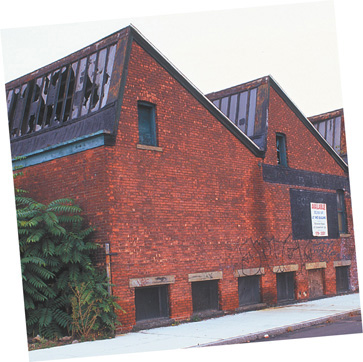The Wall Street Journal. Classroom Edition Debating Current Issues: Tariffs and Trade
Tariffs are taxes on imported goods. Supporters say tariffs protect American jobs, while critics reply that they hurt consumers by making imported products more expensive.
In this debate from The Wall Street Journal Classroom Edition, Jock Nash, a lawyer who represents textiles producer Milliken & Co., and Daniel T. Griswold, an associate director of the Center for Trade Policy Studies at the Cato Institute, discuss whether the United States sould set tariffs on imports to protect American industry.
YES Should industries be protected by tariffs?
By Jock NashThere is little made in America that cannot be made cheaper and just as well elsewhere. This is made clear by our nation's chronic and growing manufacturing trade deficit—which is running at the rate of $1.4 billion dollars a day. Currently, we are consuming more than we are producing in goods and services, by a margin of a million dollars a minute.
A growing part of this deficit is attributable to U.S.-based companies moving overseas part or all of their production of goods and services destined for consumption in the U.S. market—not in foreign markets, as the companies claim. Obviously, these companies would not be manufacturing offshore if a tariff prevented their products from entering the U.S. market at a profit.
In 2003, U.S. manufacturing employed 16 million people. This was after losing two million manufacturing jobs in 24 months. Most reports indicate that the majority of these newly unemployed workers drop out of the middle class only to join the countless working poor in the service economy. They are not finding new employment at their previous salaries.
The move to put production of goods destined for sale in the U.S. in other countries effectively destroys the ability of many American workers to earn a good living, as they traditionally have, by adding value to a product whose costs and pricing reflect the realities of the U.S. market. Without protection of some kind—like a tariff—U.S. manufacturing workers are forced to compete head-to-head with foreign workers in the same industry who may be earning pennies an hour. This situation applies to every U.S. industrial sector, from advanced technology products to basic industries.
Nations become great by producing, not consuming. Manufacturing, not trade, is the main source of prosperity. Manufacturing is the engine that increases national productivity and creates wealth. It is worth protecting—by a tariff if necessary.

Many factories have closed down as manufacturing jobs have left the United States for countries with cheaper labor. Would higher tariffs help or hurt workers and consumers?
Table of Contents
- Section 1 Benefits of Free Enterprise
- Section 2 Promoting Growth and Stability
- Section 3 Providing Public Goods
- Section 4 Providing a Safety Net
- Real-life Case Study: Government and the Interstate Highway System
- Chapter 3 Assessment
- The Wall Street Journal. Classroom Edition Debating Current Issues: Health-Care Costs
- Section 1 Perfect Competition
- Section 2 Monopoly
- Section 3 Monopolistic Competition and Oligopoly
- Section 4 Regulation and Deregulation
- Real-life Case Study: Regulating Cable Television
- Chapter 7 Assessment
- The Wall Street Journal. Classroom Edition Debating Current Issues: Oil and Energy Dependence
- Section 1 Levels of Development
- Section 2 Issues in Development
- Section 3 Financing Development
- Section 4 Transitions to Free Enterprise
- Real-life Case Study: The World Bank and Economic Assistance
- Chapter 18 Assessment
- The Wall Street Journal. Classroom Edition Debating Current Issues: Tariffs and Trade




